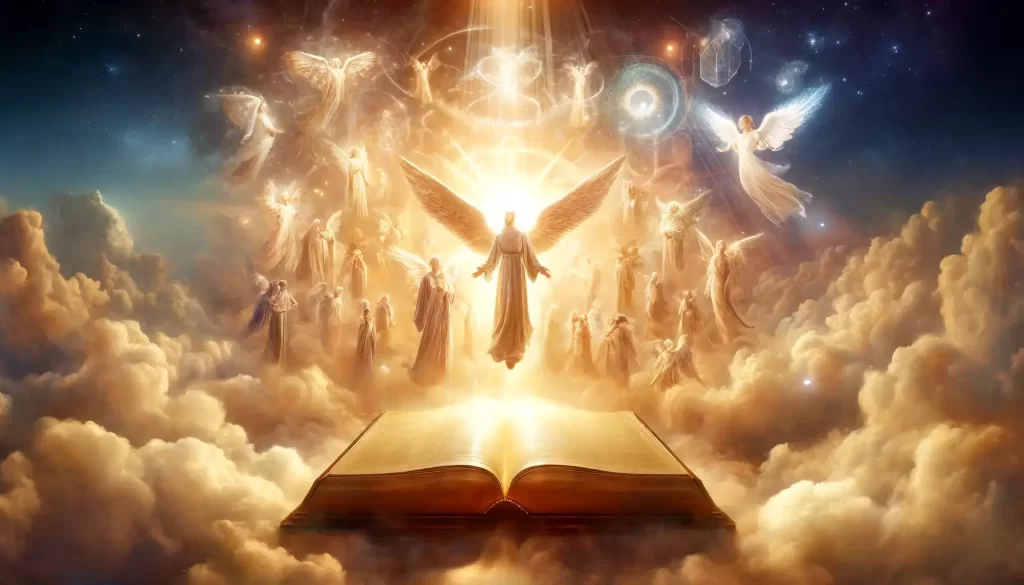
National Association of Christian Ministers Summary Series: Doctrine
Christian angelology is the theological study and doctrine concerning angels within Christianity. It encompasses beliefs about the nature, roles, hierarchy, and functions of angels as described in the Bible and Christian tradition. While the specifics of angelology can vary among different Christian denominations, there are several key aspects that are generally recognized.
1. Existence and Nature of Angels: Christian angelology affirms the existence of angels as spiritual beings created by God. Angels are considered to be distinct from humans, possessing a higher order of being. They are generally portrayed as incorporeal and immortal, although they can manifest in physical forms when necessary.
2. Hierarchy of Angels: Christian angelology often depicts angels as organized into a hierarchical structure. The most commonly mentioned hierarchy is that of three major orders: Seraphim, Cherubim, and Thrones; followed by three lesser orders: Dominions, Virtues, and Powers; and finally, three more orders: Principalities, Archangels, and Angels. Each order has its own unique characteristics and roles.
3. Roles and Functions of Angels: Angels are believed to have various roles and functions in relation to God, humans, and the world. They are seen as messengers and servants of God, carrying out His divine will. They are involved in worship, praising God, and offering prayers on behalf of humans. Angels are also seen as protectors, guardians, and guides, watching over individuals and nations. They are depicted as agents of divine intervention, carrying out specific tasks and delivering messages to humans.
4. Fallen Angels: Christian angelology acknowledges the existence of fallen angels, also known as demons or evil spirits. These angels rebelled against God and were cast out of heaven. Led by Satan, the fallen angels oppose God’s will and seek to deceive and tempt humans.
5. Angelic Encounters: The Bible contains numerous accounts of angelic encounters with humans, such as the angel Gabriel appearing to Mary to announce the birth of Jesus. These encounters are seen as divine interventions and acts of God’s grace.
6. Guardian Angels: Many Christians believe in the concept of guardian angels, believing that each person has an angel assigned to protect and guide them throughout their lives.
It’s important to note that while Christian angelology is rooted in biblical texts, interpretations and beliefs about angels can vary among different Christian denominations and theologians.




